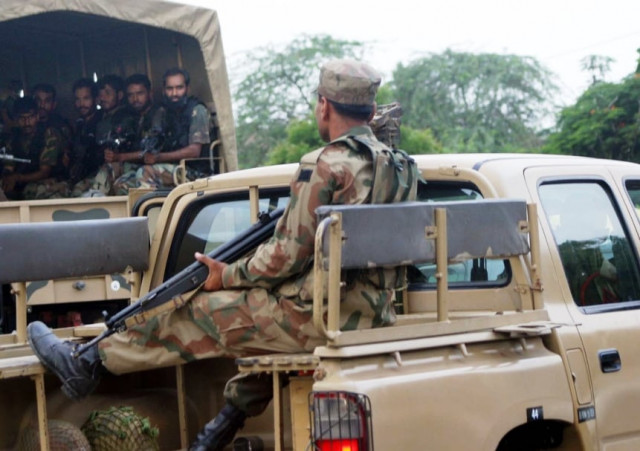Shifting focus: Rationalise defence budget, says experts
Report authors call for greater investment in education

Empirical findings have revealed that the defence expenditures are not pro poor, said Fiaz Hussain, a Lecturer at the Department of Public Administration in the Fatima Jinnah Women University, Rawalpindi.
He along with two co-authors of the research paper, Dr Shehzad Hussain, Assistant Professor at the Department of Government and Public Policy and Naila Erum, a PhD scholar on Government and Public Policy at the National Defence University were speaking at a session on the last day of a three-day conference on ‘Poverty, Inequality and Economic Growth’ at the Pak-China Friendship Centre on Thursday.

Fiaz argued that defence expenditures can affect the economy as they are considered unproductive, carry higher opportunity cost and crowd out investment. On the other hand, he said, it also has growth-promoting potential, cause expansion of aggregate demand, production and employment generation. “It exhibits spill-over effects on the economy,” he stated.
Hussian, in the research paper stated that Pakistan’s defence expenditure as a proportion of GDP has on average been 5.97 per cent since independence.
The paper investigated the impact of defence expenditure, inflation, foreign direct investment, public spending on education, GDP and GDP per capita on poverty for both long and short term for a dataset spread from 1973 to 2012, said Shehzad.
Fiaz said Pakistan was still among the poorest countries in the world, as the gross national income per capita
was $1,261, which is 143rd among 182 countries measured in the world in 2012.

On the one hand, Pakistan is facing several social problems including poverty, poor infrastructure and poor health status and on the other hand, it spends a considerable amount on defence, which might use scarce resources and crowd out growth-leading expenditures such as health and education, he said.
The authors concluded that the results prove that defence expenditures were not pro-poor both in the short and long time period. Contrary to defence, expenditure on education is pro-poor, they said, adding that the budget allocation for education can be enhanced further to reap better results.
Inflation also contributes to poverty in the long and short run, but its impact is insignificant in the short run, they said, adding that the impact of GDP on poverty was negative and significant both in the short and long run.
The authors, conclusively, said that the empirical investigation revealed that public spending on education was productive which alleviates poverty both in the short and long run.
The policy makers needed to revisit and rationalise these expenditures, said the authors, admitting that the current geo-strategic situation in the region may not favour reduction in defence expenditures drastically but their prudent and rationale allocation and utilisation can be argued.
“Inflation hurts the poor more than the rich people,” the authors said, suggesting “it can be controlled through monetary and fiscal policy measures.” They added that the fiscal deficit has become chronic in Pakistan and it could be the main reason for inflation.
Published in The Express Tribune, December 5th, 2014.



1724319076-0/Untitled-design-(5)1724319076-0-208x130.webp)















COMMENTS
Comments are moderated and generally will be posted if they are on-topic and not abusive.
For more information, please see our Comments FAQ